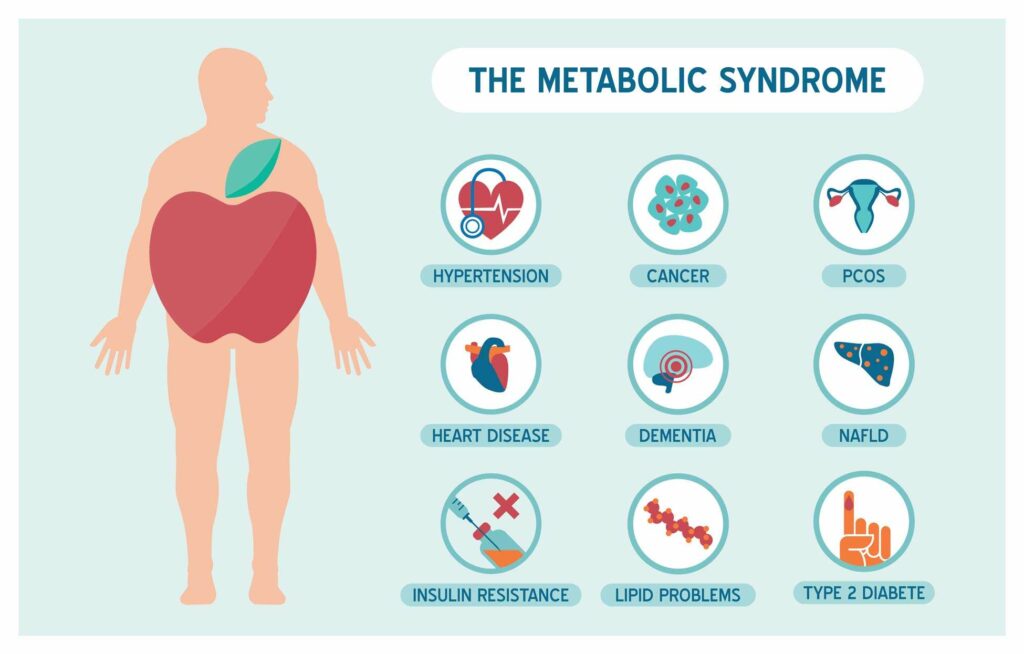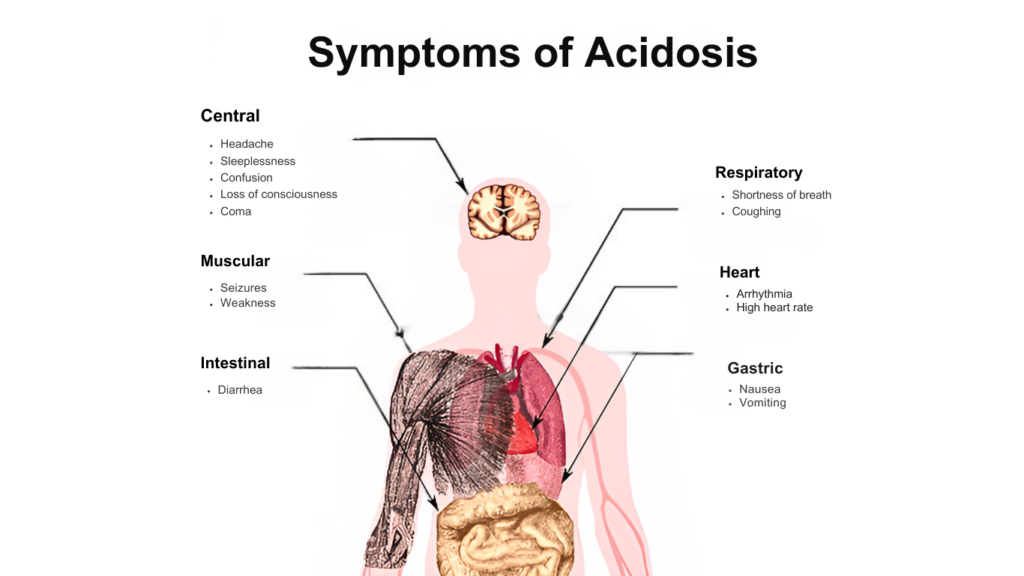Metabolism is the process that gives our bodies the energy to do everything from breathing to walking and even thinking. It’s like the engine that keeps us going. We explained some complex yet important terms related to metabolism, so you can understand how your body works and stays healthy.

What It Is: Metabolic syndrome is like a package of health problems that often come together. This package includes being overweight, having high blood pressure, high blood sugar (which can lead to diabetes), and bad cholesterol levels. It’s like having multiple issues with your health at once.
Risks: People with metabolic syndrome are at a higher risk of serious health problems, such as heart disease, strokes, and type 2 diabetes. Think of it as a warning sign that your body is struggling.
Prevention: The good news is that you can often prevent or improve metabolic syndrome by making lifestyle changes. Eating a balanced diet, exercising regularly, and managing your weight can make a big difference. Sometimes, doctors may also prescribe medications to help control blood pressure, blood sugar, or cholesterol.
What It Is: BMR is the number of calories your body needs to keep functioning while you’re at rest. Even when you’re sitting still or sleeping, your body is using energy to keep your heart beating, your lungs breathing, and your brain working.
Factors: Your BMR depends on several things, including your age, gender, height, weight, and how much muscle you have. For example, younger people and those with more muscle tend to have higher BMRs.
Why It Matters: Knowing your BMR can help you understand how many calories you need daily to maintain or lose weight. If you want to increase your BMR, building muscle through strength training can help because muscle burns more calories than fat, even at rest.
What It Is: Metabolic alkalosis happens when there’s too much base (alkali) in the body’s fluids, making them less acidic. Imagine adding too much baking soda to water—it makes the water taste flat and less sharp. That’s similar to what happens in the body.
Symptoms: People with metabolic alkalosis might experience muscle cramps, feel confused, or have an irregular heartbeat. These symptoms occur because the body’s normal balance is off.
Causes: This condition can happen due to excessive vomiting (which makes you lose stomach acid), severe diarrhea, or taking too many antacids, which neutralize stomach acid.
Treatment: Like metabolic acidosis, treatment for metabolic alkalosis focuses on finding out why it happened and fixing that problem. Doctors may give fluids or medicines to help restore the balance in your body.

What It Is: Metabolic acidosis occurs when the body has too much acid. Imagine the body’s fluids becoming too sour, like when you add too much lemon to water. This makes the blood more acidic than it should be.
Symptoms: If you have metabolic acidosis, you might feel sick to your stomach, vomit, or breathe faster than normal. It can make you feel really uncomfortable.
Causes: This condition can happen for several reasons. Sometimes, it’s because the kidneys are not working properly to remove acid from the body. Other times, it’s because someone eats too many acidic foods or takes certain medications that increase acid in the body.
Treatment: The treatment focuses on fixing the main cause of the problem. Doctors may give you medicine or suggest changes in your diet to help balance the acid in your body.
What It Is: A metabolic disease is any illness that affects how your body’s metabolism works. Metabolism is all about how your body processes food and turns it into energy. If something goes wrong with this process, it can lead to a metabolic disease.
Examples: Common examples of metabolic diseases include diabetes (where your body has trouble controlling blood sugar) and thyroid disorders (where your body makes too much or too little thyroid hormone, affecting how fast your metabolism works).
Importance: It’s important to diagnose and treat metabolic diseases early because they can lead to other serious health problems if left untreated. For example, uncontrolled diabetes can damage your heart, kidneys, and eyes.
Prevention: Regular check-ups with your doctor, a healthy diet, and staying active can help reduce the risk of developing metabolic diseases.
What It Is: Metabolic disorders refer to a wide range of conditions where something goes wrong with your metabolism. These disorders can affect how your body processes carbohydrates, proteins, or fats.
Examples: Some metabolic disorders are inherited, meaning you’re born with them. For example, phenylketonuria (PKU) is a condition where the body can’t process a part of protein properly, leading to serious health problems if not managed with a special diet.
Diagnosis: Diagnosing a metabolic disorder usually involves blood tests to check for abnormal levels of certain substances in the body. Sometimes, genetic tests are also needed.
Treatment: Treatment for metabolic disorders varies depending on the condition. It may include taking medications, following a special diet, or making lifestyle changes to manage the disorder.
What It Is: Metabolic function refers to how well your body converts the food you eat into energy. This energy is then used to power everything you do, from thinking to moving.
Influences: Your metabolic function can be influenced by many things, including what you eat, how much you exercise, and your genes. For example, some people have a faster metabolism, meaning they burn energy more quickly, while others have a slower metabolism.
Optimizing: To keep your metabolism working well, it’s important to eat a balanced diet, exercise regularly, and manage any health conditions you may have. Regular check-ups with your doctor can help you keep track of how well your metabolism is working and catch any problems early.
Good metabolic health is essential for your overall well-being. When your metabolism is functioning properly, you have more energy, feel better, and are less likely to develop chronic diseases like heart disease or diabetes. If you have any issues from the above-mentioned issues, do not hesitate to reach out. Book your consultation with the best gastroenterologist in Pakistan.
By understanding these key metabolic terms, you can make better decisions about your health. Recognizing the signs of metabolic issues and taking steps to maintain a healthy lifestyle can help keep your body’s energy engine running smoothly and improve your overall quality of life.
Additional Resources